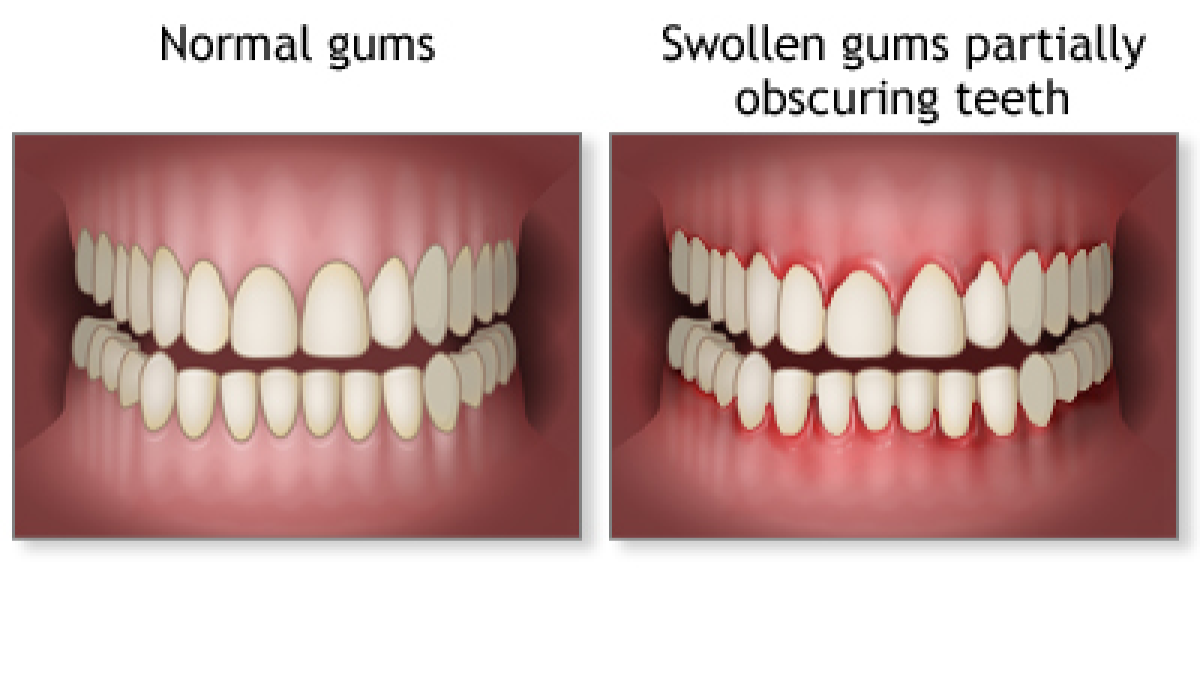Introduction: Why Gum Health Matters for Everyone
Gum health is an essential part of overall well-being. Understanding gum swelling and its effects is important for everyone. Swollen gums can be a sign of various health issues, and knowing the causes helps in preventing bigger problems. Healthy gums can ensure better overall health, as studies show a connection between oral and overall health. Encouraging open discussion about gum health in families can help identify problems early and lead to better care habits. Let’s explore what can cause your gums to swell and how you can tackle these issues effectively.
1. Gum Disease: The Usual Suspect
Gum disease is a frequent culprit behind gum swelling. It comes with telltale signs like redness, tenderness, and gum swelling pain. You might also notice bad breath. It’s important to address gum disease quickly to avoid long-term damage. Regular brushing, flossing, and visiting the dentist can prevent and control gum disease. These habits are daily investments in your gum health. By staying on top of oral hygiene, you can keep gum swelling and pain at bay.
2. Aggressive Brushing and Flossing
Cleaning your teeth too vigorously can harm your gums. While keeping teeth clean is crucial, brushing and flossing too hard can irritate them. This can lead to damage and swelling inside gums. To avoid this, use a soft-bristled toothbrush and apply gentle pressure. Learn the right techniques for brushing and flossing to maintain great oral health without causing teeth gum swelling.
3. Hormonal Changes and Gum Sensitivity
Hormonal changes can also lead to swollen gingiva. During life stages like puberty, menstruation, and pregnancy, hormone levels fluctuate. This can make your gums more sensitive and prone to inflammation. During these times, it’s critical to keep up with oral care. Customized care routines can address your changing needs and help reduce teeth gum swollen during these hormonal shifts.
4. Medications: Unexpected Contributors
Certain medications can unexpectedly lead to swollen gums causes. Drugs used for blood pressure and anti-seizures might be contributing factors. Never stop these medications without consulting a doctor. Instead, inform your dentist about your prescriptions so that they can suggest ways to manage gum swelling and pain effectively while continuing necessary treatments.
5. Nutritional Deficiencies and Gum Health
Nutrition plays a big role in gum health. A lack of vital nutrients, especially Vitamin C, can lead to gum problems. Ensuring a balanced diet full of fruits and vegetables supports oral health. A healthy diet is not only great for your gums but also your entire body. By addressing nutritional gaps, you can take meaningful steps in gum swelling treatment at home.
6. Tobacco: A Known Irritant
Smoking and chewing tobacco have long been linked to poor health, including gum issues. These habits lead to increased swelling inside gums and other oral health problems. Quitting can drastically improve your gum health and overall well-being. There is plenty of support available to help kick the habit, and the benefits are well worth the effort.
7. Infections and Gum Swelling
Sometimes infections are the cause of swelling inside gums. Bacterial, viral, or fungal infections can lead to painful, inflamed gums. Obtaining a professional diagnosis is crucial in these scenarios. Dentists can provide the necessary treatment to address infection-related painful swelling in gums and restore gum health.
8. Dental Appliances: The Unseen Culprit
Ill-fitting dental appliances like dentures and braces can cause problems. They can irritate gums, leading to discomfort and swelling. To alleviate this, ensure appliances are properly fitted. Adjustments by a dental professional can help prevent further issues and relieve swollen gums causes.
9. Health Conditions that Affect Gums
Certain health conditions, like diabetes, affect your immune system. This can lead to more frequent swelling inside gums. Managing these health issues requires regular medical screenings and control of the underlying illnesses. By taking charge of your health, you can reduce painful swelling in gums effectively.
10. Mouth Ulcers: Invisible Agitators
Small, painful canker sores can inflame gums and are often unnoticed. They’re usually harmless but can cause painful swelling in gums. Home care tips, such as avoiding spicy foods and keeping up with oral hygiene, can provide relief. Simple changes in diet and care routines will keep these sores from disrupting your oral well-being.
How to Tackle Swollen Gums: Action Steps
Maintaining good gum health is a combination of preventive measures and professional care. Regular dental visits, proper brushing, and flossing prevent issues from arising. Adopting a healthy lifestyle by eating a balanced diet, quitting tobacco, and seeking medical help when needed are all part of proactive care. If gum swelling or gum swelling pain persists, consulting a dentist is key to addressing potential problems early on.
Conclusion: Empowering You with Knowledge
Swollen gums might be common, but they are manageable. With simple, consistent steps, you can ensure your gums remain healthy. Staying proactive and informed can prevent issues, leading to a bright smile and a healthier life.



